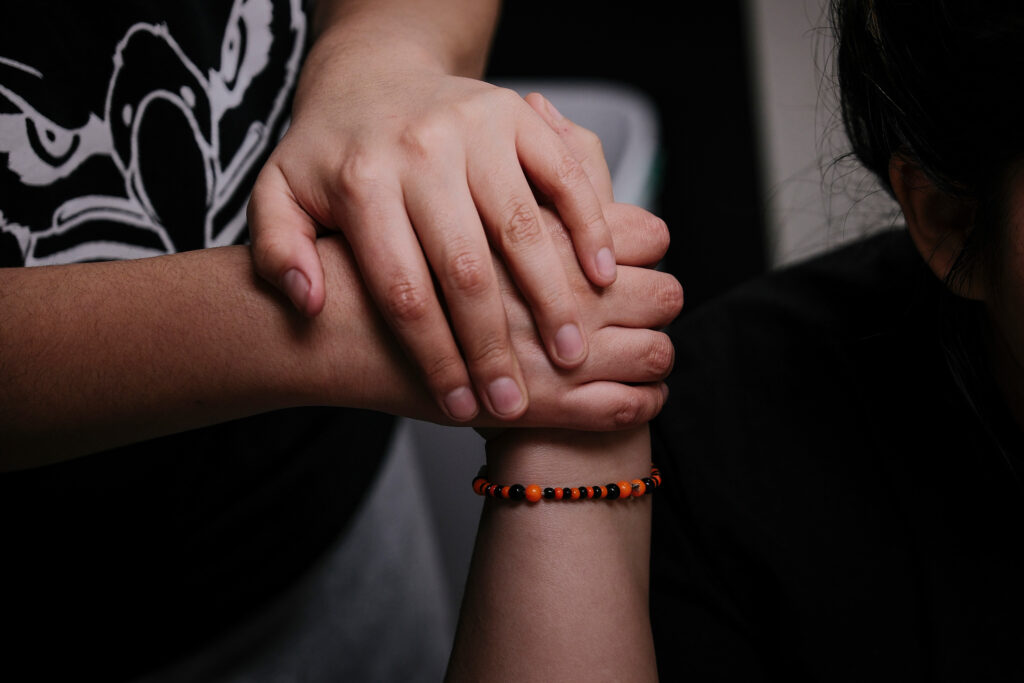Search for survival
The Northern Cheyenne tribe creates local solutions to save its people and future from the MMIP crisis
Story by Holly Malkowski. Photos by James Benton.
When Paula Castro reported her 14-year-old daughter, Henny Scott, missing on Dec. 8, 2018, the police denied her an amber alert.
They wouldn’t give a reason why. Castro didn’t feel like they were taking her seriously.
They still didn’t take action when Scott missed Castro’s birthday on Dec. 11. That was when Castro knew the situation was dire.
Enlarge
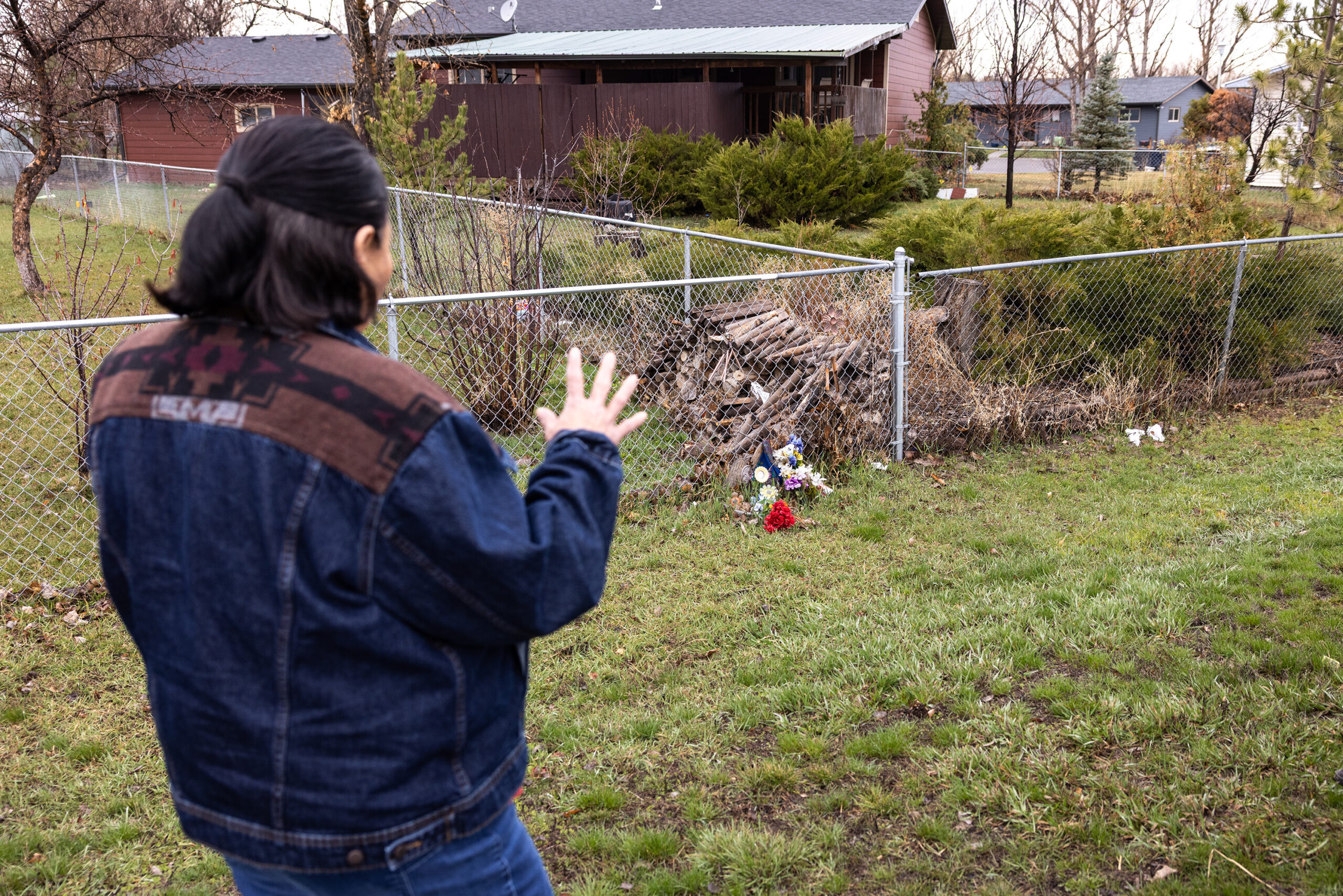
According to a press release from the United States Attorneys Office, Scott was last seen walking out of a residence. She was found deceased 20 days later, on Dec. 28, just 200 yards from that residence.
An examination determined her cause of death as accidental and said she died of hypothermia. It said she had no preexisting trauma and was wearing lightweight clothing despite being outside in the cold. The report states that alcohol use was a significant condition of her death. The attorney’s office cannot prove any federal crime was committed, and therefore did not seek any federal charges.
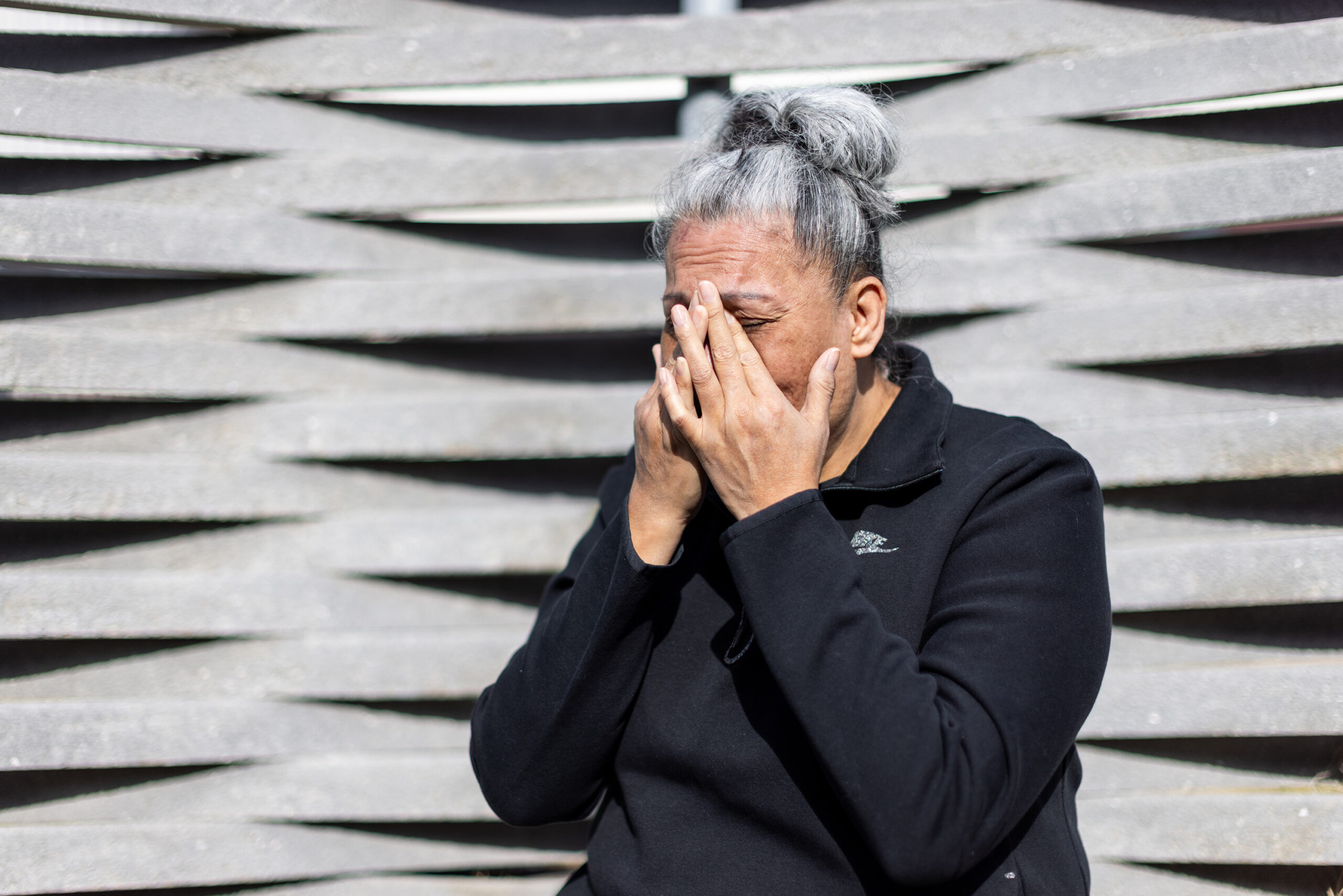
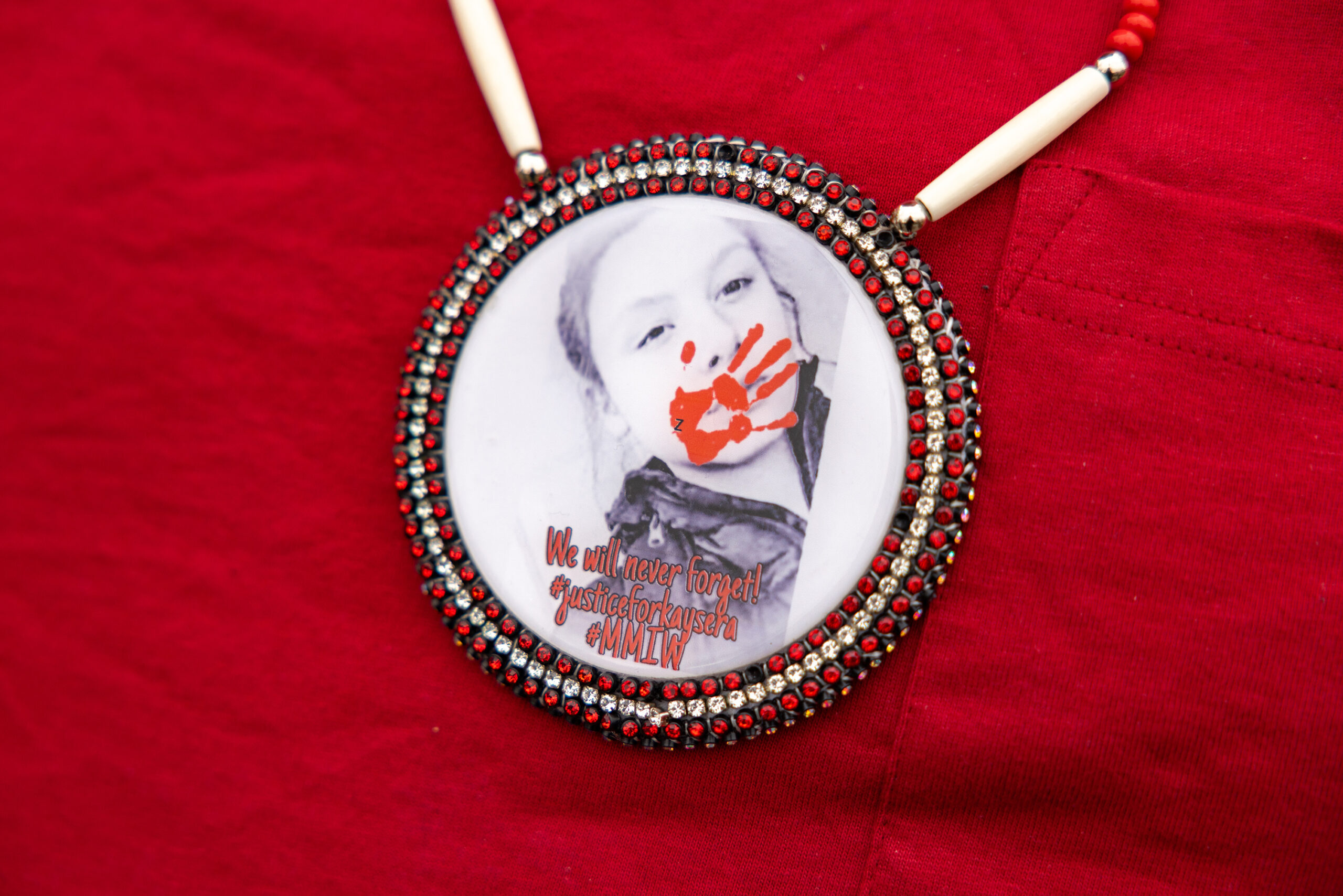
Fighting for political justice
Castro’s experience in the struggle for justice and answers isn’t unique. Across the reservation, and Indigenous communities nationwide, families with missing loved ones often encounter similar issues, like a lack of urgency and communication from law enforcement. Because of this, the momentum to solve the problem comes from the community members who band together to help each other during these crises.
Before her death, Scott and Castro had a great relationship.
“We went everywhere together and she was always happy,” Castro said. Scott was planning on going into the military and becoming a doctor.
As the crisis of Missing and Murdered Indigenous People devastates Native communities like the Tsis tsis’tas, systemic failures have forced the people to take initiative. On the Northern Cheyenne reservation citizens work to raise awareness for MMIP and systemic change through community gatherings and legislative advocacy. Feeling abandoned by both local and national governments, the Northern Cheyenne people continue to rely on each other in the fight to bring their loved ones home.
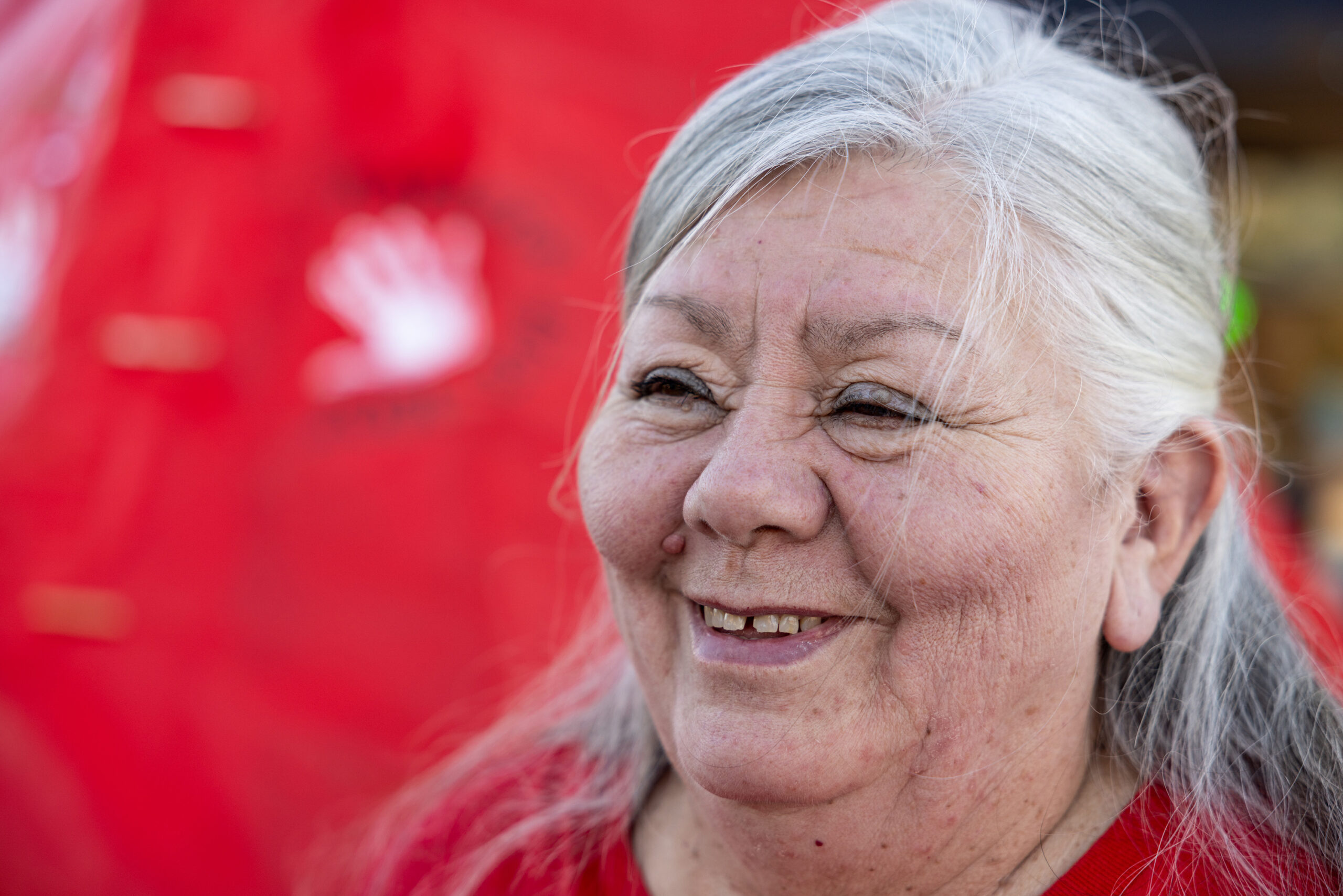
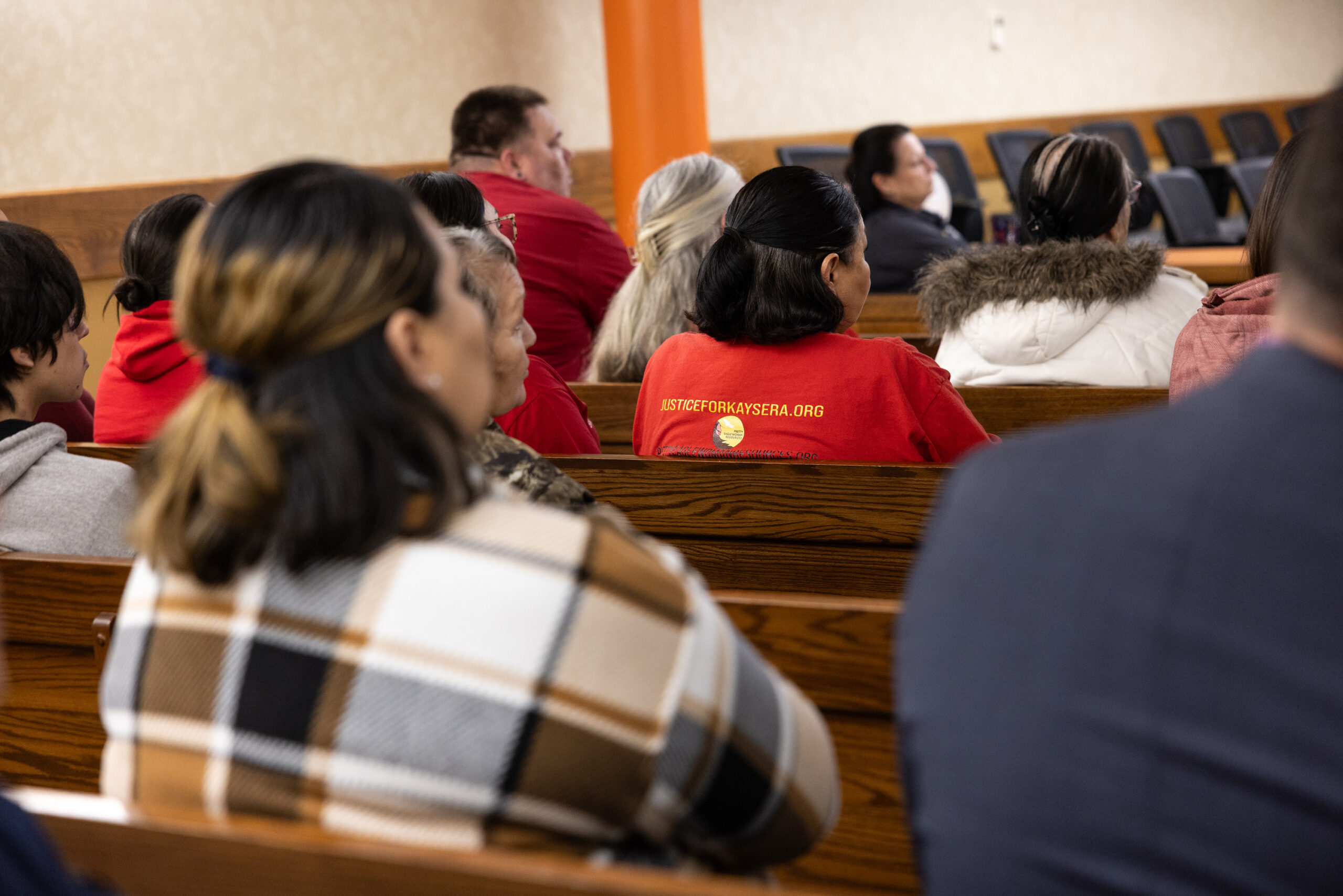
Local law enforcement struggles
Only the FBI is allowed to investigate cases that occur on tribal reservations, which can be difficult because the bodies are often found just outside of reservation boundaries in bordering cities like Hardin or Billings. Those become county cases making it difficult for families to report or follow. The overlap of jurisdictions causes officers to defer to others. Often do not thoroughly complete or share reports.
According to the Montana Missing Indigenous Persons Task Force Report data from 2023, Indigenous people make up 6.2% of Montana’s population, but 30.6% of people reported missing. Of those missing Indigenous people, 68% are female. According to NativeHope.org, about 15% of missing people in Wyoming are Indigenous, half of Montana’s percentage. The Montana task force was recently extended for another 10 years, meaning the force will be active until 2033. It was created to improve communication between agencies, identify barriers to the MMIP movement and track data on Montana Indigenous people. There are currently 47 Individuals listed in the missing persons database.
For the Tsis tsis’tas community, these aren’t just names in a database. They are friends, siblings, parents, grandparents, spouses and community members.
During his first presidential term that began in 2017, Donald Trump signed an executive order to create a task force known as Operation Lady Justice to assist with Missing and Murdered Indigenous People cases and improve coordination between departments working on these cases, such as local law enforcement and the Bureau of Indian Affairs. The two-year task force, which consisted of seven members, including two Indigenous women, ended in 2021.
In its reports to the president, the task force praised its work holding listening sessions throughout reservations and border towns nationwide. However, none were held in Montana.
Rae Peppers, who was serving as a Montana representative during that time, said she never saw anything come out of that task force. In fact she considers it a stunt. Other community members hadn’t even heard of the task force. During his second term, so far Trump has made no mention of any orders relating to missing Indigenous people.
In fact, the Trump task force was created with little input from stakeholders, according to a public statement from grassroots advocates, which included Northern Cheyenne woman Desi Small-Rodriguez. The statement alleged that advocates, “had no opportunity to take part in the design of the initiative as a whole, much less specific items such as listening session structure, outreach plans, or project leadership.”
The statement also went on to say the listening sessions that were held were inadequate and inaccessible, and the cold case review teams failed to make a significant impact on the crisis.
The Northern Cheyenne citizens echo this statement and do not feel like enough has been done by the government to help the missing and murdered epidemic on their own reservation.
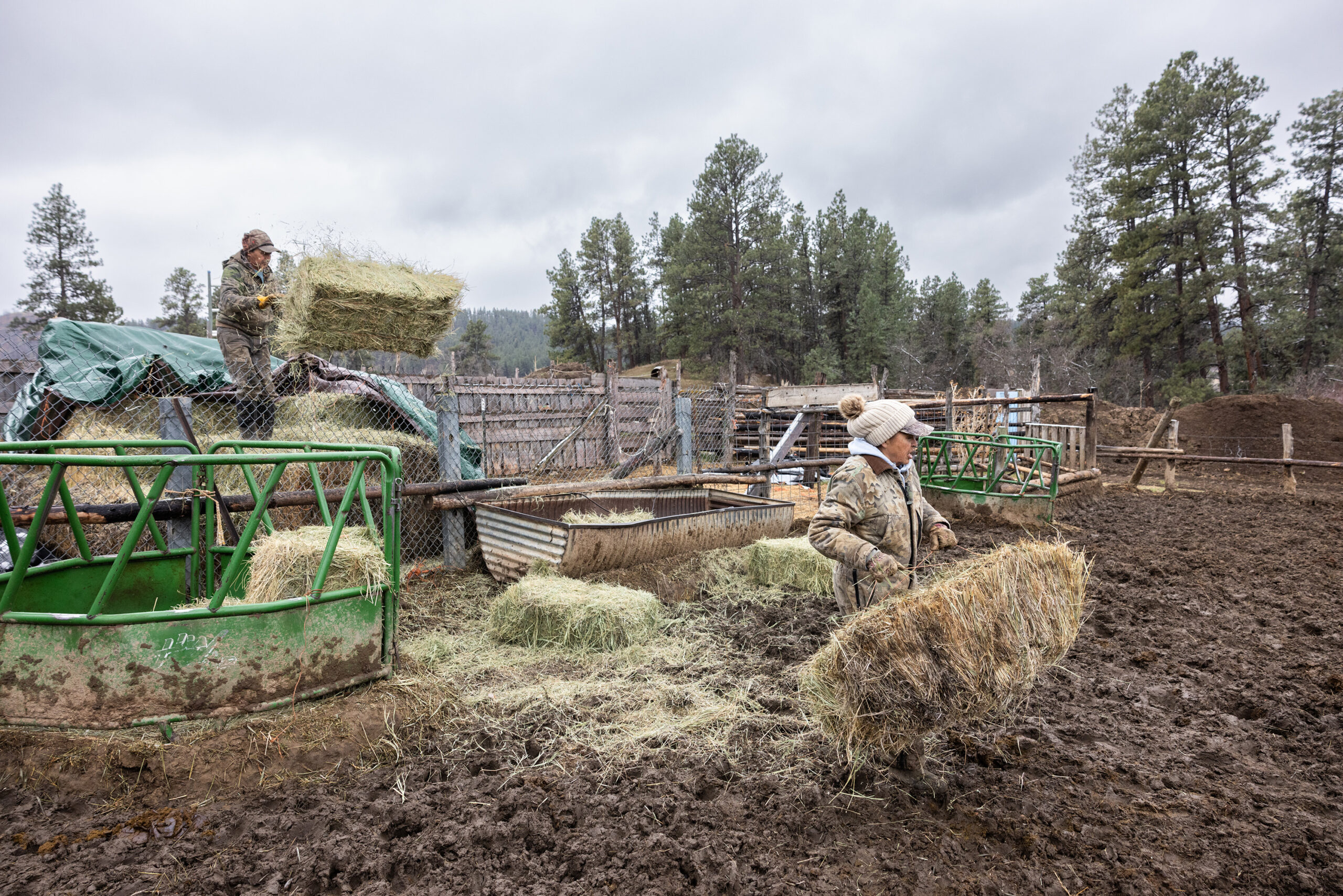
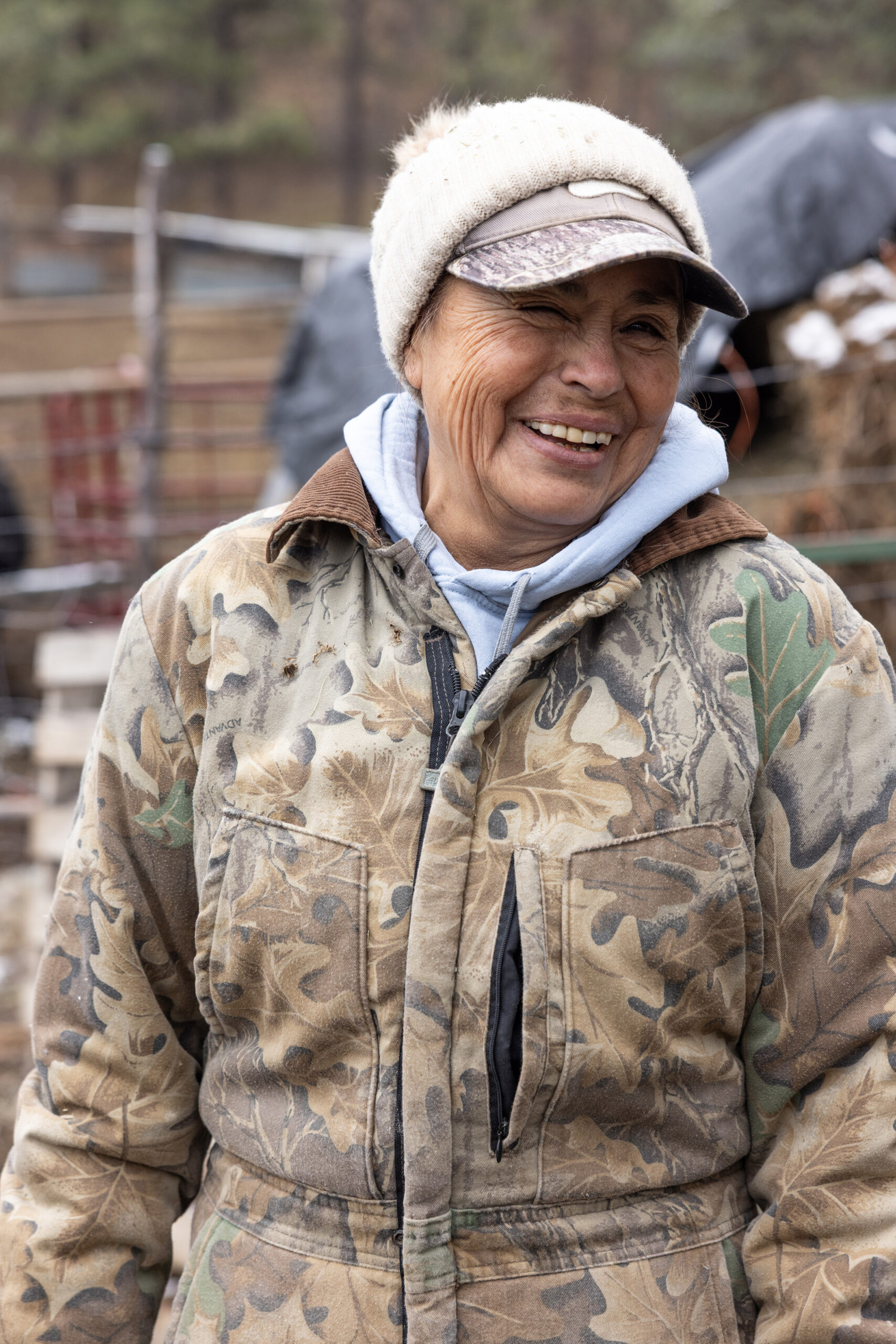
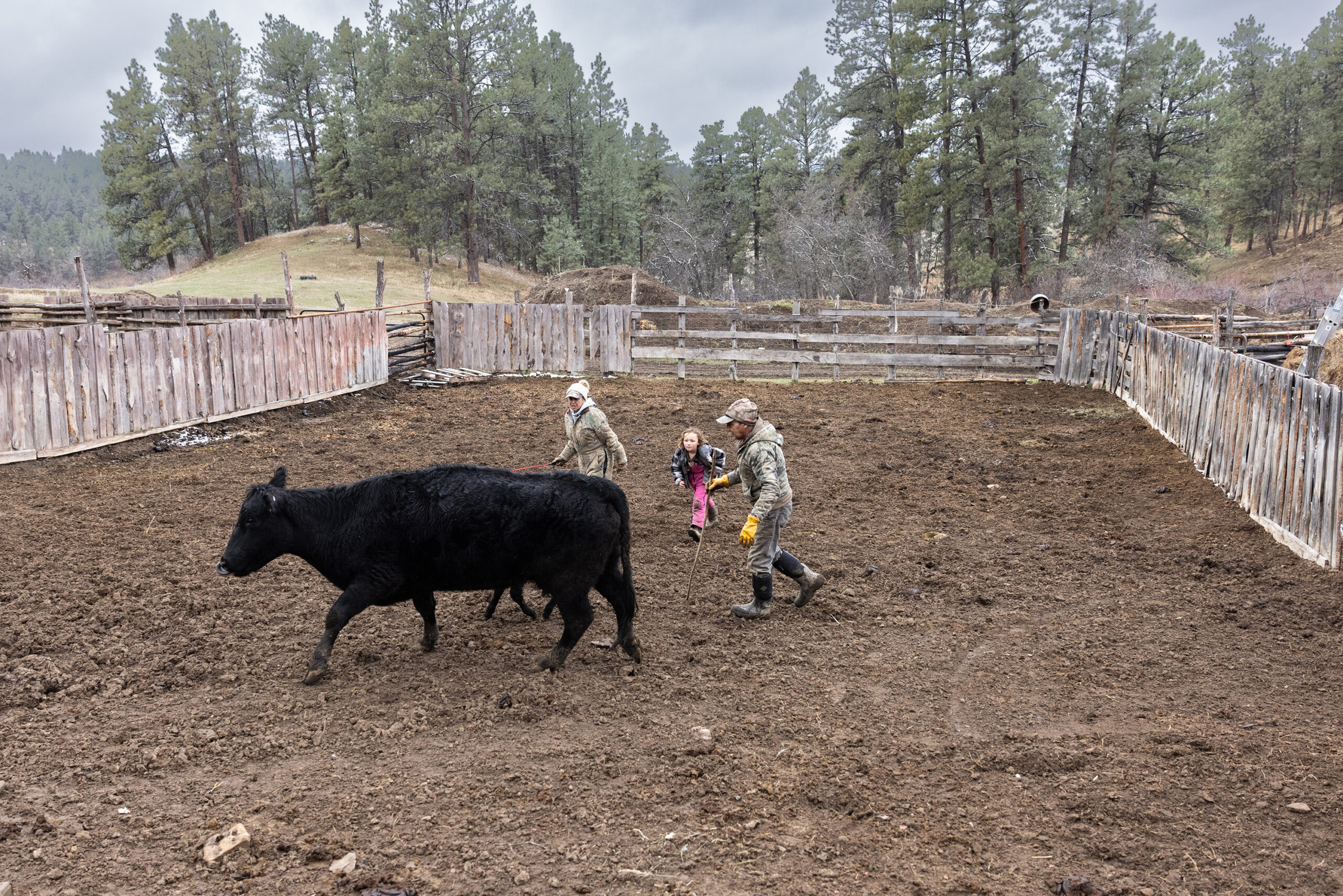
In the Legislature
Rae Peppers stands on the porch of her bright blue house overlooking a mile of dusty road slicing through a backdrop of trees and 1930s tractors. It’s the life she says she wouldn’t trade for anything. She said working on the farm is an escape for her, otherwise she is constantly thinking about all the missing people from her community.
Peppers served for the Montana Legislature, representing District 41 from 2013 to 2021. She advocated heavily for change for Missing and Murdered Indigenous People and served a large role getting Hanna’s Act, an important bill regarding MMIP, passed.
Hanna’s Act is a Montana bill that authorizes the Department of Justice to assist in the investigation of missing persons cases. This was influential in MMIP cases because prior to this, cases were handled completely by the Bureau of Indian Affairs or local law enforcement, which caused jurisdiction issues and confusion. The act aimed to create better communication and an efficient system for sharing information.
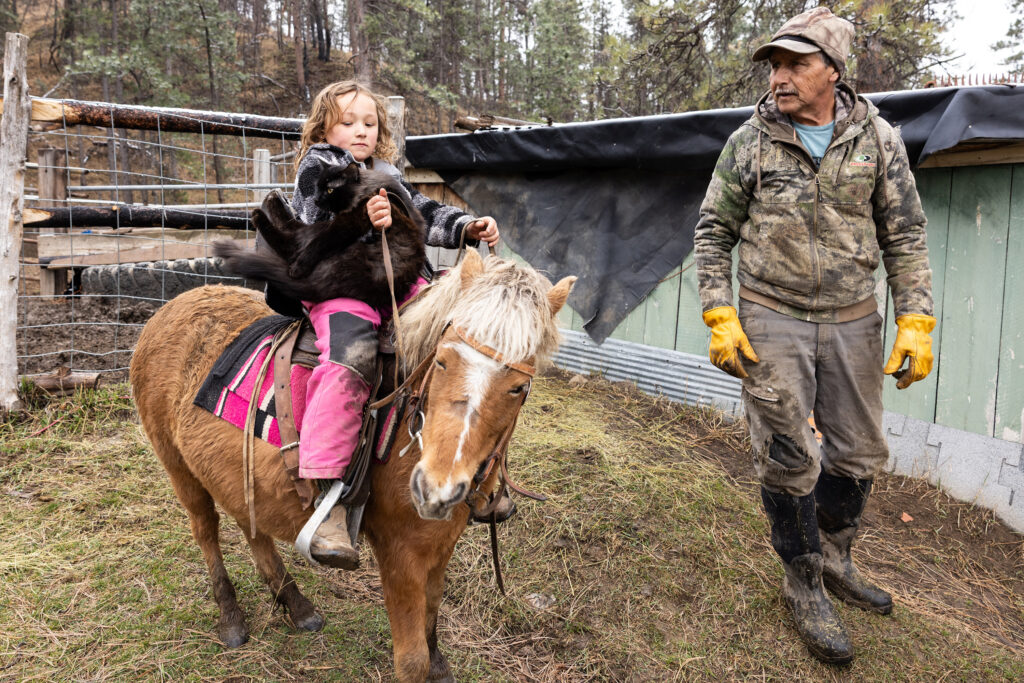
Hanna’s Act is named after Hanna Harris, a 21-year-old woman who was murdered near the Northern Cheyenne and Crow reservations in 2013. The act also forced the Department of Justice to hire a missing person specialist, Brian Frost. According to Peppers, Frost came to the reservation once to introduce himself, but she has not heard of him being there since.
Peppers said that passing Hanna’s Act in 2019 was extremely difficult and she experienced racism and pushback every step of the way. She refused to stop fighting until it was passed. The bill was brought up on the first day of a legislative session in 2019 and did not pass until the last day of the session after many delays like losing funding and missed deadlines.
Peppers said she was shocked at the blatant racism she encountered from other politicians, some calling the act “An Indian Bill” and therefore dismissing its relevance. During this time, she had to remind other Indigenous representatives, and herself, of how strong they are.
“Wipe your tears away and don’t ever let them see you fucking cry,” Peppers said.
Though Peppers was not re-elected for office in 2020, her work did not stop. Peppers is extremely involved in Northern Cheyenne and is actively working on getting her masters in Native American Studies with a focus on the Missing and Murdered phenomenon.
Peppers is the Board Treasurer of Pretty Eagle Woman Resources, a nonprofit run by Yolanda Fraser focused on raising awareness for the Missing and Murdered Indigenous People crisis and bringing support to those who have been affected by it. She also helps with Star, a community-led search and rescue group put together to help find missing people.
Peppers is a full-time financial assistant at the Northern Cheyenne Development Corporation. She works from 7 a.m. to 2 p.m. and then she goes home and she and her husband, James Peppers, go to work on the farm. The two, along with their granddaughter Allie Peppers and her pony Sweetpea, feed and water the cows and move them around to help with calving.
The Peppers said they have it down to a system so they can handle the farm, just the two of them, but Allie gets to name all the animals. They live mostly off of what they can grow themselves and just recently expanded their garden so they might be able to help other community members due to the rising prices from inflation and the unknown effect of the tariffs.
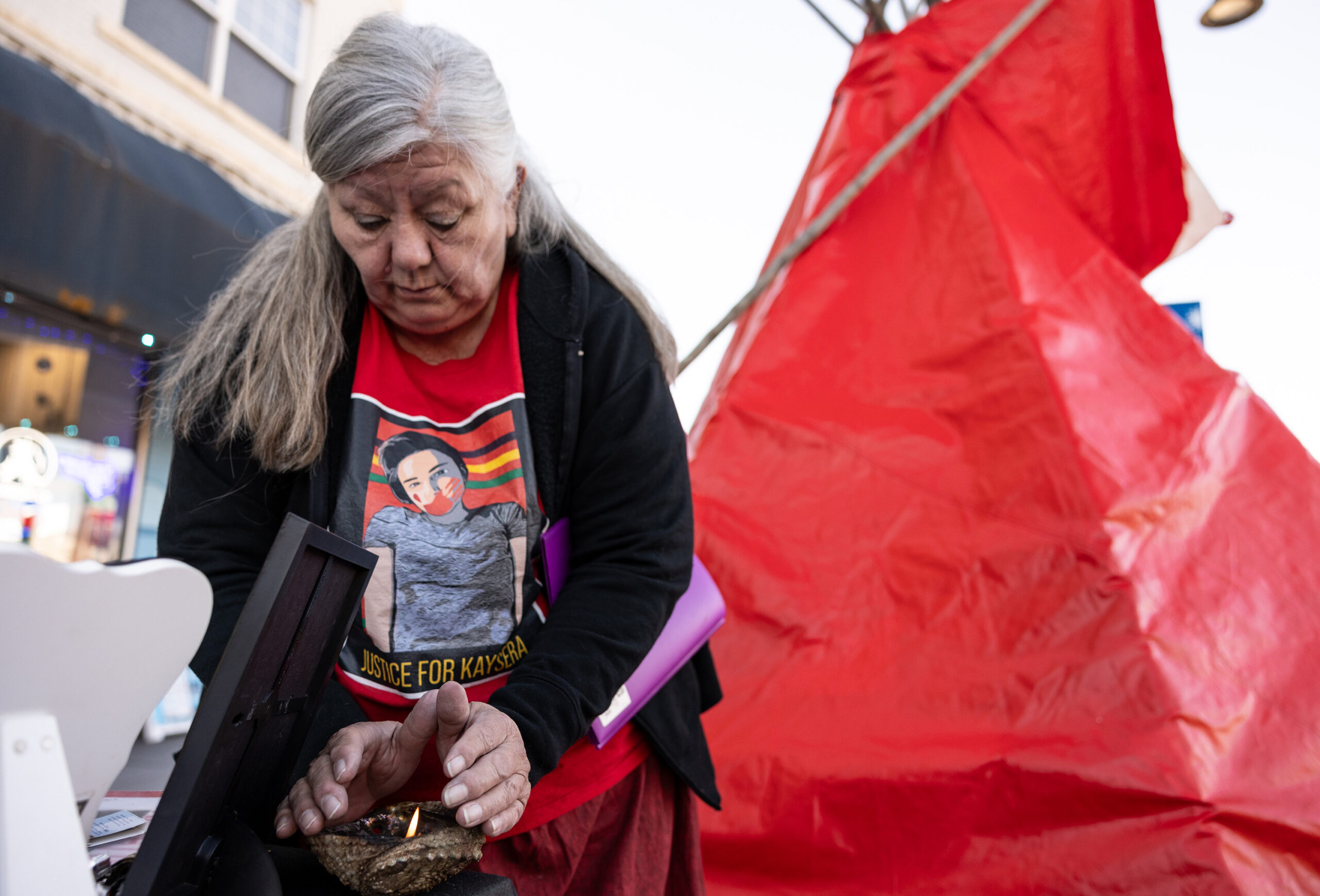
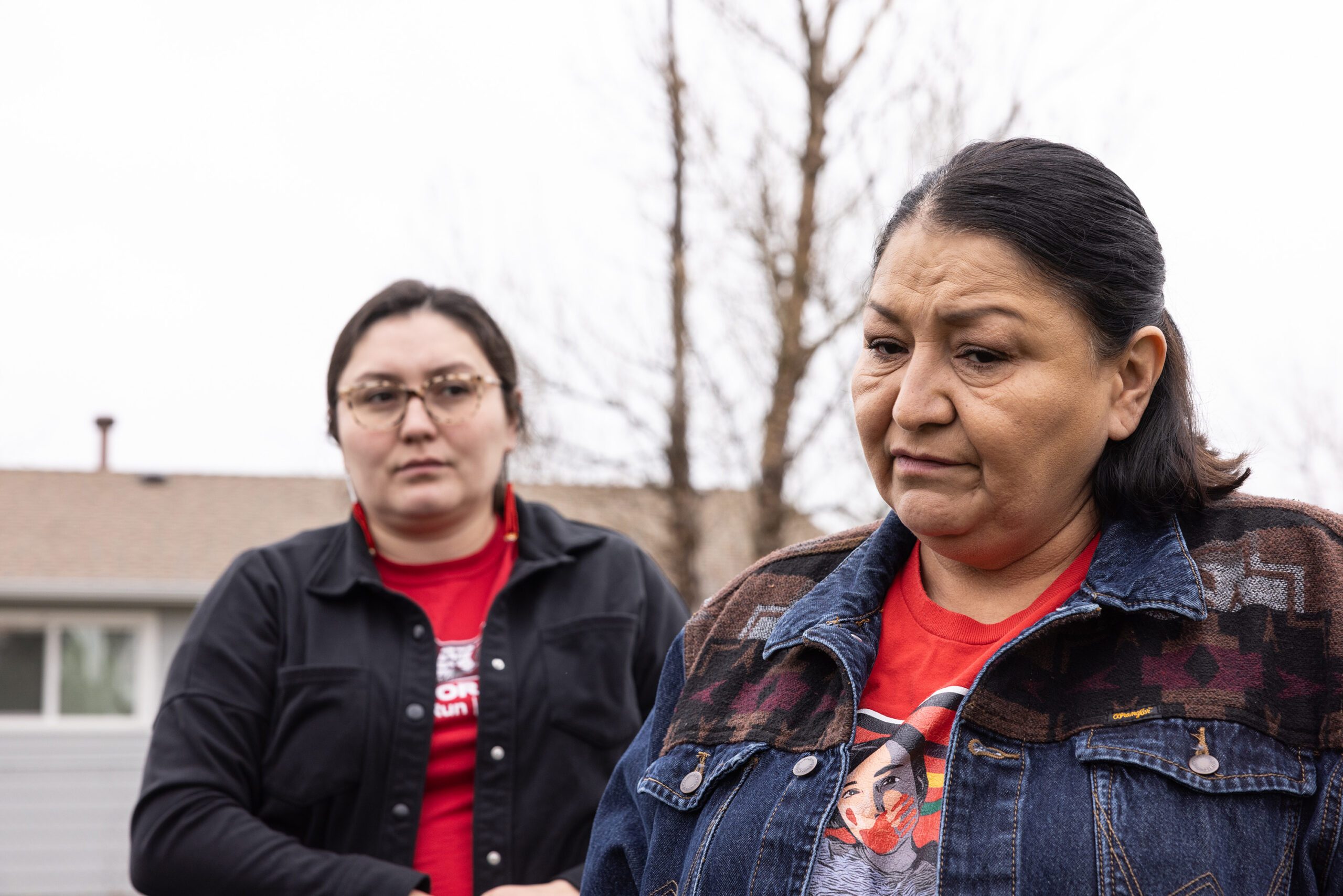
In the back of the lively house is a small office, the walls are lined with diplomas and certificates. She said her focus in her dissertation is specifically on predators and people who think they can come onto the reservation to commit a crime because of the lack of law enforcement.
“My research is on predatory targeting. Our women are targeted because the reservations are grey areas,” Peppers said. “They know they can come on here and do whatever they do because our laws are so poor, especially in Indian Country.”
She hopes to complete her dissertation by the end of the year and plans to run for office again in the future because she feels she can still do more.
Peppers said the fight is within the people who are still looking for answers. She doesn’t believe the government will handle the problem, but the people will.
She said she is concerned about the lack of response from the tribal government and the BIA. The agencies officers are not part of the community and did not make any effort to integrate themselves, she said. The bureau also recently cut over 100 employees due to the drop in federal funding.
The tribe has been involved in several lawsuits concerning policing on the reservation already and stories swirl the community of police brutality and law enforcement covering up evidence. As frustration with law enforcement grows, the community becomes more determined to seek justice and demand accountability.
One of these organizations is Star: a search and rescue team that is run by the community, ranges from between 20-50 people who communicate via Facebook, according to LeVonna Littlebird-Graham.
Top: Allie Peppers hugs her grandfather, James Peppers, after riding her pony, Sweetpea, around her grandparents’ farm. She works side by side with them while herding and feeding the cows. Bottom: Rae Peppers has been fighting for her community for years. She was a driving force for passing Hanna’s Act, which created a position in the Montana Department of Justice to investigate all Missing and Murdered Indigenous cases. Peppers is working on a Ph.D. in MMIP issues and plans to continue advocacy work for the movement.
There is a common meeting place and from there the groups spread out and begin to search. Often, they are found and returned home. Unfortunately, that is not always the case.
Overnight into March 28, the search group found a young woman who had been missing for three days, deceased. Littlebird-Graham said you could feel the heaviness throughout the community because of this news. She and her family were up late into the night helping to look for her.
On the Northern Cheyenne reservation, this happens quite often. Littlebird-Graham said typically the searches do not end tragically, and most people are found and returned home by the search group.
The tribe does not have its own police force currently, instead relying on the BIA, an agency in the U.S. Department of the Interior. The community members are dissatisfied with its law enforcement program.
BIA officers on the reservation refused to sit for an interview and said all questions must be directed to the BIA media contact, who never responded.
Kaysera Stops Pretty Places went missing just 10 days after her 18th birthday. Her body was found five days later in the neighborhood where she was last seen.
Stops Pretty Places was the granddaughter of Northern Cheyenne citizen Yolanda Fraser. When Pretty Places passed, Fraser started a nonprofit called Pretty Eagle Women Resources in her memory. The nonprofit raises awareness for MMIP through community efforts and outreach and provides support and advocacy for the families of those affected by the crisis.
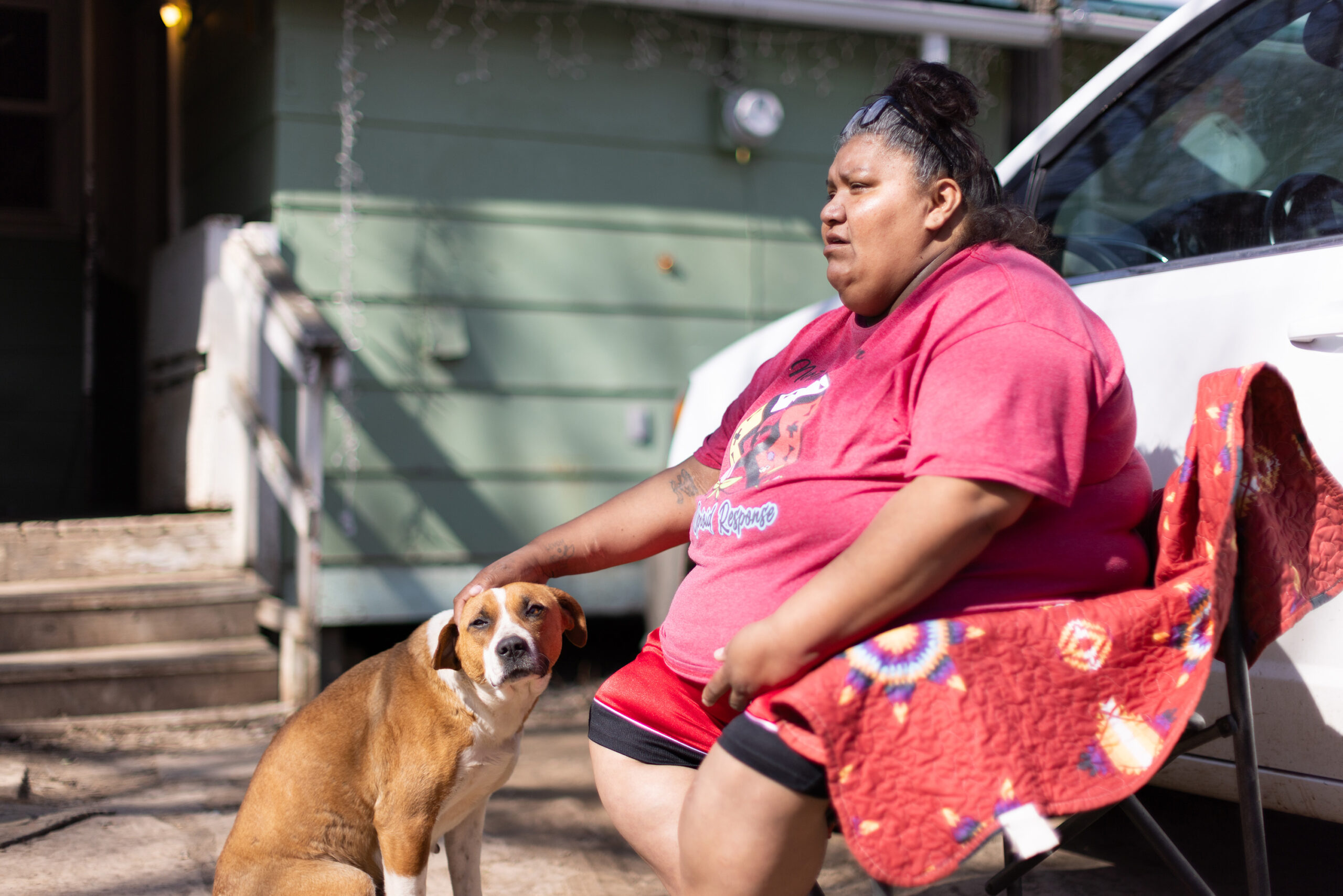
Fraser works with Peppers and others to put on events like walks and rallies. Fraser was also appointed to the task force as the representative from the Tsis tsis’tas.
Fraser, Peppers and others sat outside the Hardin County Courthouse on April 1 for the status hearings of criminal endangerment charges related to the cases of Stops Pretty Places and Selena Not Afraid, a teenager who was murdered in the bordertown of Hardin in 2020. Afterwards, some of the group went to Stops Pretty Places’ memorial, which is near where her body was found.
“I don’t think policies should take precedence over someone’s life,” Fraser said.
When Henny Scott was missing, her mother Paula Castro did everything in her power to find her, even if the police didn’t take her seriously.
Frustrated with law enforcement, Castro eventually formed her own search group to look for Scott and found her quickly outside the residence near Muddy Creek where she was last seen.
Castro said she had asked the police to look for her at the residence about two weeks prior and never heard if they did or not. She said even after Scott’s body was found, the residence was never taped off and people continued to freely go in and out.
The police told Castro they could not move the body until the morning and someone would sit with Scott until then. She said she saw the police officer drive away from the scene and asked if she could stay with Scott so she wasn’t alone. She was denied access.
Castro said Scott was covered in bruises and clearly had a broken nose and scratches across her chest, like someone had reached out to grab her. When Castro went to pick up Scott’s belongings, there was a winter coat.
Castro said the police would not tell her how long Scott had been out there or how long she had been dead. Castro also mentioned a Snapchat video she had seen of some teenagers jumping Scott at that same house that she told the police about, but they did not include it in the case. She said that throughout the time Scott was missing, the police barely contacted her and she felt like she was left in the dark.
“I was just going crazy through that whole time and I was like ‘Well what’s going on? What do they know?” Castro said.
She said even at the funeral home she wasn’t allowed to bathe or dress Scott.
Tragically, her experience is one of many. Community members often find the bodies of friends and loved ones before law enforcement does. For the Tsis tsis’tas tribe, the community efforts are life saving.
***
A SPECIAL PROJECT BY THE UNIVERSITY OF MONTANA SCHOOL OF JOURNALISM
ADDITIONAL FUNDING SUPPORT FROM THE GREATER MONTANA FOUNDATION
READ MORE:
Previous
Thriving together
Next
Maintaining Medicaid
